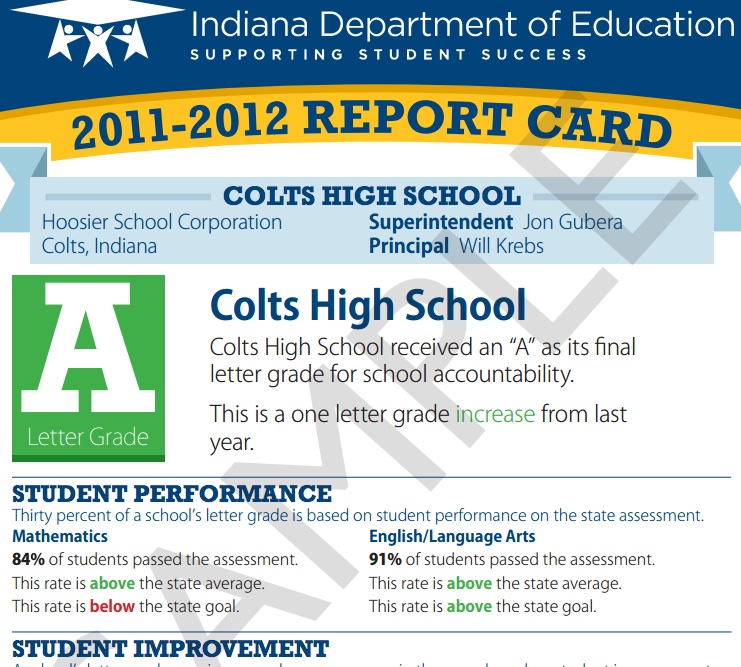State Lawmakers Take First Step Toward Overhaul Of A-F Letter Grade System

Elle Moxley / StateImpact Indiana
Rockville High School received an A from the state and the junior high received a B. Indiana uses a different accountability system for high schools than it does for elementary schools.
A panel of state lawmakers gave initial approval Wednesday to overhaul the state’s A-F grading system. From Indiana Public Broadcasting‘s Brandon Smith:
If Ritz’s approach seems less straight forward than the current system, it’s worth noting the Indiana Department of Education already uses the language “focus” and “priority” to describe levels of state support in D and F schools. We’ve written before that turnaround specialists are visiting those schools in hopes of keeping them off the intervention list.Members of both parties are uniting behind a single message — the current school accountability system doesn’t make sense. But some are split on what the new system should look like. Sen. Jim Banks, R-Columbia City, says the current system is impossible to explain, but he wants to retain the A-F framework.
“The A-F grading metric provides a simple opportunity to grade schools so we know which schools are good, which need to improve,” says Banks.
State Superintendent Glenda Ritz proposes labeling schools as “reward,” “focus” or “priority” schools based on two measures: Growth and achievement.
If schools have both high achievement and positive growth, they’re a reward school. If they have low achievement and negative growth, they’re a priority school. If there’s a mix, they earn a focus school designation. She says trying to fit two metrics, achievement and growth, into one grade doesn’t work.
“When you combine them together and try to have one solid score for that, then that’s where we are now, where we cannot tell you what the grade represents,” says Ritz. “Does it represent mostly growth? Does it represent mostly achievement? And how can it represent both fairly?”
A major criticism of the current system has been the complexity of calculating grades — Banks noted Wednesday that an accountability system shouldn’t take a Ph.D. to explain — and Ritz lobbed criticism at then-Superintendent Tony Bennett from the campaign trail when the initial grades were released last fall.
Had Bennett won another four years, it seems unlikely the Republican supermajority would be pursuing changes to the system he championed. But after the election, some education policy watchers suggested the A-F might be one place where Ritz could effect real change.
“What I can see is tinkering with the measures underlying the ranking system and also being more clear about the extent to which schools are sanctioned based on their ranking,” Indiana University professor Ashlyn Nelson told StateImpact.



